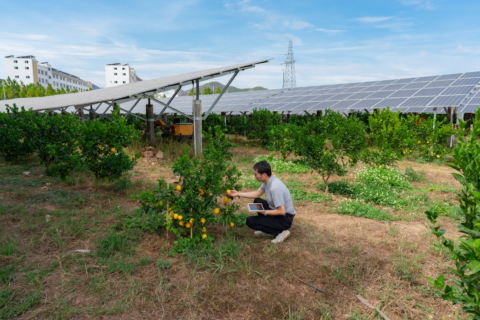Several key drivers can enhance cities’ quest for building sustainable communities. One of these drivers that is critical for sustainability is investing in human capital aligned with regional job growth that strengthens the green economy. Green economies focus on sustainability and environmental preservation through initiatives like renewable energy and resource efficiency while integrating human capital by incorporating nature-centric designs and practices into urban areas, which helps mitigate environmental impacts and fosters economic growth and resilience.
Equitable distribution of green economic opportunities for Minority- and Women-Owned Small Business Enterprises (MWSBE) is crucial for fostering inclusive and sustainable growth. This entails ensuring fair access to resources, contracts, and support mechanisms within the green economy, such as renewable energy projects, eco-friendly infrastructure development, and sustainability initiatives. However, significant obstacles can arise because of the often-limited experience MWSBEs have in green infrastructure projects. Despite the proven effectiveness of green infrastructure in enhancing urban resilience, the adoption of strategies to increase training and contracts with MWSBEs in green infrastructure remains limited. This impediment not only hampers the progress toward sustainability but also hinders the equitable distribution of economic opportunities.
Cities can employ strategies that accomplish a dual goal of sustainability and economic inclusion by centering green economy development efforts toward Black, Indigenous and Other People of Color (BIPOC) businesses and workers.
Collaboration
To achieve this dual goal, the City of New Orleans engaged a local non-profit partner, Thrive New Orleans, to put into action the Green Business Academy, a robust set of strategies that trains a green workforce, expanding the use of local BIPOC vendors.
As part of their work with NLC in the Southern Cities Economic Inclusion Initiative (SCEI), the City of New Orleans and Thrive New Orleans have taken proactive steps to bridge the knowledge gap and empower underrepresented entrepreneurs. This innovative program provides a comprehensive curriculum tailored to the specific needs of the local landscaping professionals and contractors, equipping them with business certifications and technical skills in stormwater management.
Green infrastructure encompasses a diverse array of practices aimed at mimicking natural processes to manage water, mitigate floods, enhance air quality and promote biodiversity within urban environments. Among these practices, flood mitigation stands out as a critical component in safeguarding cities against the escalating threats posed by climate change-induced extreme weather events. Traditional approaches to flood mitigation often rely on concrete structures and centralized drainage systems, which not only entail high costs but also disrupt natural hydrological cycles, exacerbating downstream flooding and water pollution. In contrast, green infrastructure solutions such as rain gardens and green roofs offer a sustainable alternative by harnessing nature’s innate capacity to absorb, retain and slowly release water.
The Green Business Academy’s hands-on approach not only imparts theoretical knowledge but also facilitates practical learning experiences, enabling participants to gain firsthand insights into the implementation of green infrastructure projects. By fostering a collaborative learning environment, the Academy fosters a sense of community among participants, encouraging knowledge sharing and peer support. Furthermore, by incorporating business certification components into the curriculum, the program enhances the marketability of MWSBEs, opening up new avenues for growth and diversification within the burgeoning green economy.
A Tailored Approach
One of the key strengths of Thrive New Orleans’ Green Business Academy lies in its emphasis on local relevance and contextual understanding. By tailoring the curriculum to align with the unique environmental and socioeconomic dynamics of the region, the program ensures that participants are equipped with practical skills that are directly applicable to the challenges and opportunities prevalent within their communities. This localized approach not only enhances the effectiveness of the training but also fosters a sense of ownership and stewardship among participants, empowering them to become agents of change within their neighborhoods.
In addition to technical skills development, the Green Business Academy offers mentorship and networking opportunities, connecting participants with industry experts, policymakers, and potential clients. These connections facilitate knowledge exchange and create pathways for collaboration and business development, strengthening the local green economy ecosystem.
Measurable Results
As a result of their committed efforts, Thrive New Orleans has seen some impressive results. In the last year, the program has enrolled 165 residents in training programs and 144 have received Green Infrastructure Certifications. In addition, 163 have been placed in apprenticeships or internships, of which 144 have completed those programs, and 100 have found full-time employment.
The success of Thrive New Orleans’ Green Business Academy serves as a testament to the transformative power of community-driven initiatives in advancing sustainability and economic empowerment simultaneously. By investing in the capacity building of MWSBEs and fostering an inclusive ecosystem for green innovation, cities can unlock new pathways towards resilience, prosperity, and social equity. As we navigate the complex challenges of the 21st century, it is imperative to harness the full potential of local talents and resources to build cities that are not only sustainable but also equitable and thriving for all. Together, cities can embrace the promise of green infrastructure and empower communities to shape a greener, more resilient future for generations to come.








